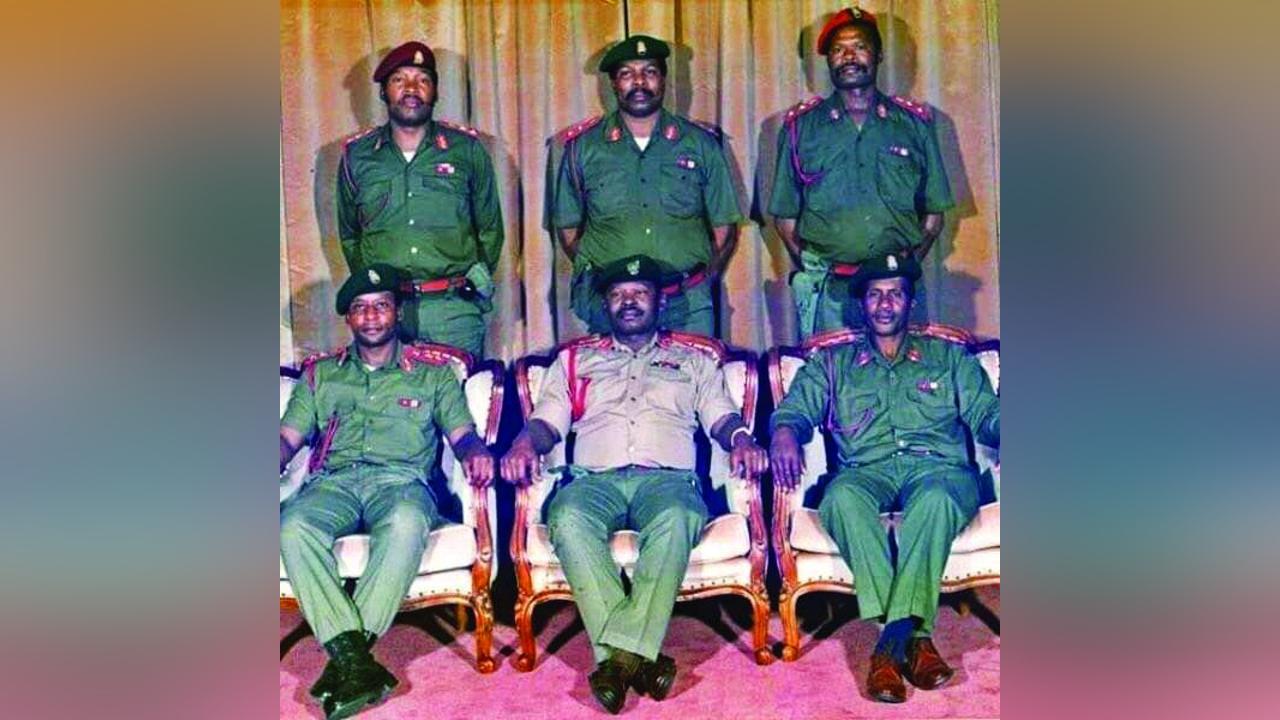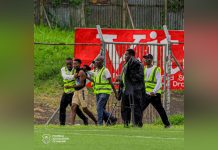Africa-Press – Lesotho. On March 8, 1986, Brigadier Matjota Ramotšekhoane died in military detention, about two months after the army toppled the government of Prime Minister Leabua Jonathan.
Now, 35 years have passed since his death, several other pages have been turned, each containing stories of pain and anguish as people suffer in the hands of law enforcement agencies.
In recent years, newspaper pages have been jam-packed with new names of people killed by law enforcement agencies. The new names came to embody the struggle against impunity for killings by the Lesotho Defence Force (LDF) and the Lesotho Mounted Police Service (LMPS).
The story of Ramotšekhoane, whose family has not received justice, increasingly faded from collective national memory as years passed by. But on March 13 his family stood up and broke their long silence.
In an interview with Public Eye which was published on March 19 this year, Ramotšekhoane’s family welcomed the proposed establishment of the Transitional Justice Commission (TJC).
The genie had been let out of the bottle and it seems, will not return. “The initial report by government’s doctor indicated that Brigadier General Matjota Ramotšekhoane died from pneumonia,” Ramotšekhoane’s son, Tanki, told Public Eye this week.
“However”, he added, “a report by an independent doctor found traumatic brain injuries and brain hemorrhage which was attributed as cause of death”.
He said the doctor indicated that the brain injuries were caused by an outside force – a blow to the head caused by being hit with a blunt, heavy object like “bag of sand”.
“When they tortured him, they wrapped his head with a blanket and hit it with a hammer. Torturers called that method of torture ‘ho roesa motho khare’,” he added.
Brigadier Ramotšekhoane died together with fellow army men Colonel Sehlabo Sehlabo and Sergeant Tjane in March 1986 in police custody. Ramotšekhoane and Sehlabo had been senior officers before the military coup of January 1986.
An inquest into Ramotšekhoane’s death was concluded in January 1987, but it did not identify the officers responsible for his ill-treatment while in custody. In August 1987, Ramotšekhoane family brought action for damages against the authorities.
The following month the ruling Military Council issued an Order indemnifying government from all acts committed between January 1986 and January 1988 in defence of national security.
“It has been 35 years now of complete silence; we are still waiting for justice to be done. Different democratic governments have been installed but none has said anything about this brutal killing,” Tanki said.
Brigadier Ramotšekhoane, who was the second-in-command of the Lesotho Paramilitary Force, was considered a potential threat to the army commander Major General Metsing Lekhanya and was one of the military commanders loyal to Prime Minister Jonathan’s administration.
And emerging reports at the time of his arrest suggested the incoming military junta suspected he would be leading the protest against the coup leaders as “he appeared sympathetic to Jonathan’s rule.
”
Proponents of TJC say the commission will ascertain the truth of what happened during past conflicts and turmoil as a basis for healing the wounds which will lead to reconciliation of the nation.
The establishment of a TJC was proposed last month by the head of the Southern African Development Community (SADC) facilitation team to Lesotho, retired South African Deputy Chief Justice Dikgang Moseneke.
This proposal aroused the ire of the Action for Peace and Solidarity (APS), a justice and human rights association formed by the peers and comrades of the slain Lieutenant-General Maaparankoe Mahao to promote his legacy and seek justice for him and other victims of similar crimes.
Mahao was waylaid and killed by the members of the Lesotho Defence Force (LDF) on his way from Mokema, near Roma, to Maseru on June 25, 2015. APS said it had learned with shock about “feverish attempts” by Moseneke to cause the government to enact a law to free the incarcerated suspects in the name of finding alternative justice.
“This is couched in the terms of establishing an odd institution called the Transitional Justice Commission (TJC), which is nevertheless given the customary functions of a Truth and Reconciliation Commission (TRC) which the self-professed political handlers, clients and promoters and protectors of these suspects have been incessantly calling for as a way to avoid the due process of the law which in some cases involves their own indictment,” APS said on Sunday.
It added: “It is now common cause that this proposal was rejected by both the formative Plenary I and the resolution-making Plenary II of the national reforms dialogue, and talks on matters thus concluded cannot be reopened – by resolution of that people’s convention.
APS said it had since learned that, despite the universally known principle that alternative justice that avoids prosecution of suspects can only happen by consent of the sufferers and the affected, the government is proceeding in full haste to develop a law for a typical TRC under the pretense of this model without consulting the victims’ families.
The statement concluded by stating: “Finally, we make the proverbial clarion call to all democrats in politics and civil society, human rights and rule of law/justice activists of all hues, and progressive media, who have made possible this watershed moment, to steadfastly guard against and mobilise in opposition to the return to recent dark ages which would be ushered in by this arbitrary promotion of impunity and non-accountability, at this late hour in our epic journey towards attainment of The Lesotho we want.
In recent history, Lesotho has gained notoriety in the region for political instability which observers blame on a powerful security cluster, particularly the army, which tends to override the executive often with extrajudicial murders.
There are a series of unsolved murders of prominent personalities in the past decades and the broad based National Reforms exercise currently under way is seen by international development partners and the SADC as a panacea to restoring stability in the country.
For More News And Analysis About Lesotho Follow Africa-Press






